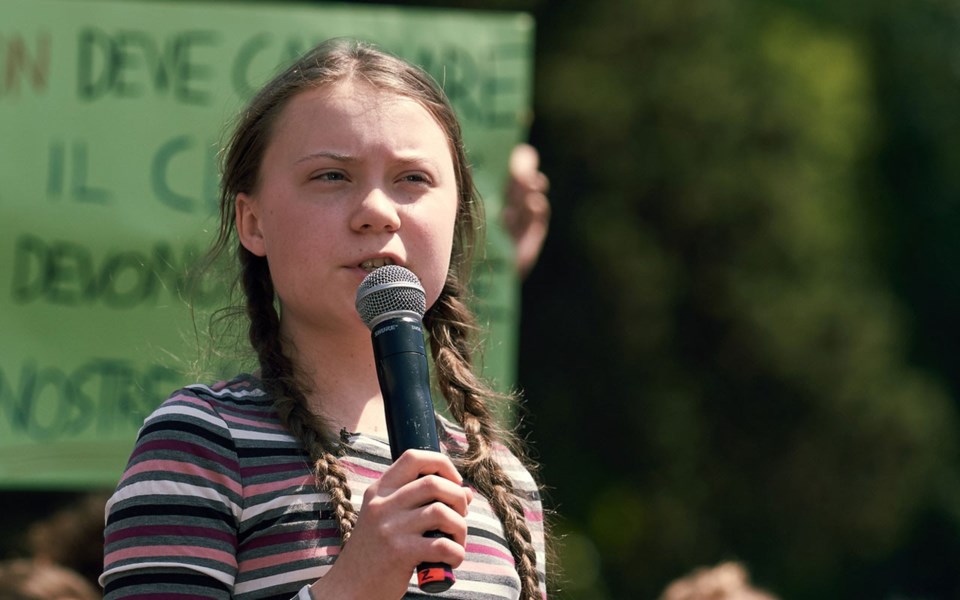A couple of weeks ago, I was visiting with family and friends in Ontario.
I finished with the can I had been drinking from and looked around the hotel room for a spot I could discard it. Seeing only a plastic garbage bag, already half-filled with waste, I asked out loud, "Is there somewhere where we're putting recycling?"
My younger brother, walking behind me, retorted sarcastically, as brothers tend to do.
"We get it, you live in B.C."
It took a lot of self-restraint to not hurl a few expletives his way, but I like to think I've matured since the days where our arguments would turn into screaming matches that end with, "I'm telling Mom!"
Instead, I shot him the kind of death-glare-eye-roll combo that only irritated older sisters can properly execute and said something along the lines of, "Wanting to recycle a can has nothing to do with living in B.C. Sorry for caring about the planet."
While I'd hazard his dig was more intended as a way to get under my skin than to insinuate recycling, or climate change for that matter, is unimportant, it still served as one of a few examples I've noticed lately of environmentally conscious behaviour being perceived by some as trendy, elitist, reserved for West-Coast-tree-huggers or a justification to feel morally superior. Maybe it is easier to care about the environment when your route home from work includes glacier views and old-growth forests, or when your favourite pastimes, or in Whistler's case, even jobs, depend on it. But if the countless scientists whose research shows our window to slow climate change is shrinking are to be believed (and they are), it's clear that it shouldn't be a luxury to care about climate change, but a necessity—no matter where you live.
Climate change is in the spotlight this week, thanks to the United Nations Climate Action Summit currently taking place in New York. You probably saw 16-year-old activist Greta Thunberg's passionate, moving speech floating around the internet, during which she slammed world leaders for their lack of action. (The Swedish student travelled to North America by zero-emissions sailboat, if you're curious). On Tuesday, Sept. 24, the UN's 195-nation climate science body also approved a significant report that details the grim impact of global warming on oceans and Earth's frozen zones.
Moreover, the UN summit is bookended by a Global Climate Strike, inspired by Thunberg, which saw millions take to the streets in thousands of cities around the world on Friday, Sept. 20. More rallies are set to take place in about 150 countries this Friday, Sept. 27, including one in Montreal, which Thunberg is expected to attend.
Thousands are expected to join the demonstration in Vancouver, with many businesses set to close during the strike in support. Whistler will hold its own rally this Friday, beginning at Lost Lake at noon. (See you there!)
Despite this, the strikes are getting their fair share of opposition, with climate deniers calling these protestors "alarmists."
It's a unique and monumental time for Canadians in particular to be having this discussion, as our federal election campaign coincidentally continues. In a few weeks, voters have the opportunity to elect a new government—the officials we will entrust to lead us and create policy for the next four years.
With scientists from the UN Intergovernmental Panel on Climate Change (IPCC) allotting just over a decade to significantly change our habits before the earth warms beyond significant repair, those four years will set the tone for how our country faces this threat. No pressure or anything.
This all might be why I'm surprised climate change hasn't been as frequent a discussion on the campaign trail as I expected it to be.
Despite the fact that Canadians say climate change is one of the top five issues they care about in this campaign—alongside the economy, affordability, health care and taxes, according to an Ipsos poll—to me, leaders have spent more time hurling attacks at each other's abilities to lead than discussing how to combat climate change.
Meanwhile, Canada is not currently on track to attain the greenhouse-gas reduction levels our government committed to in the Paris Agreement, according to Environment and Climate Change Canada's most recent projections.
To that end, I think many of us agree it's become increasingly clear we need to change our behaviour if we want to lower our emissions, but not everyone seems ready to take action.
I'm not trying to diminish the importance of other hot-button issues. People will base their votes on what matters most to them, as they should. But climate change shouldn't be viewed as an elitist concern. After all, melting glaciers don't just matter to those who like to play on them—their effects could impact everyone.




